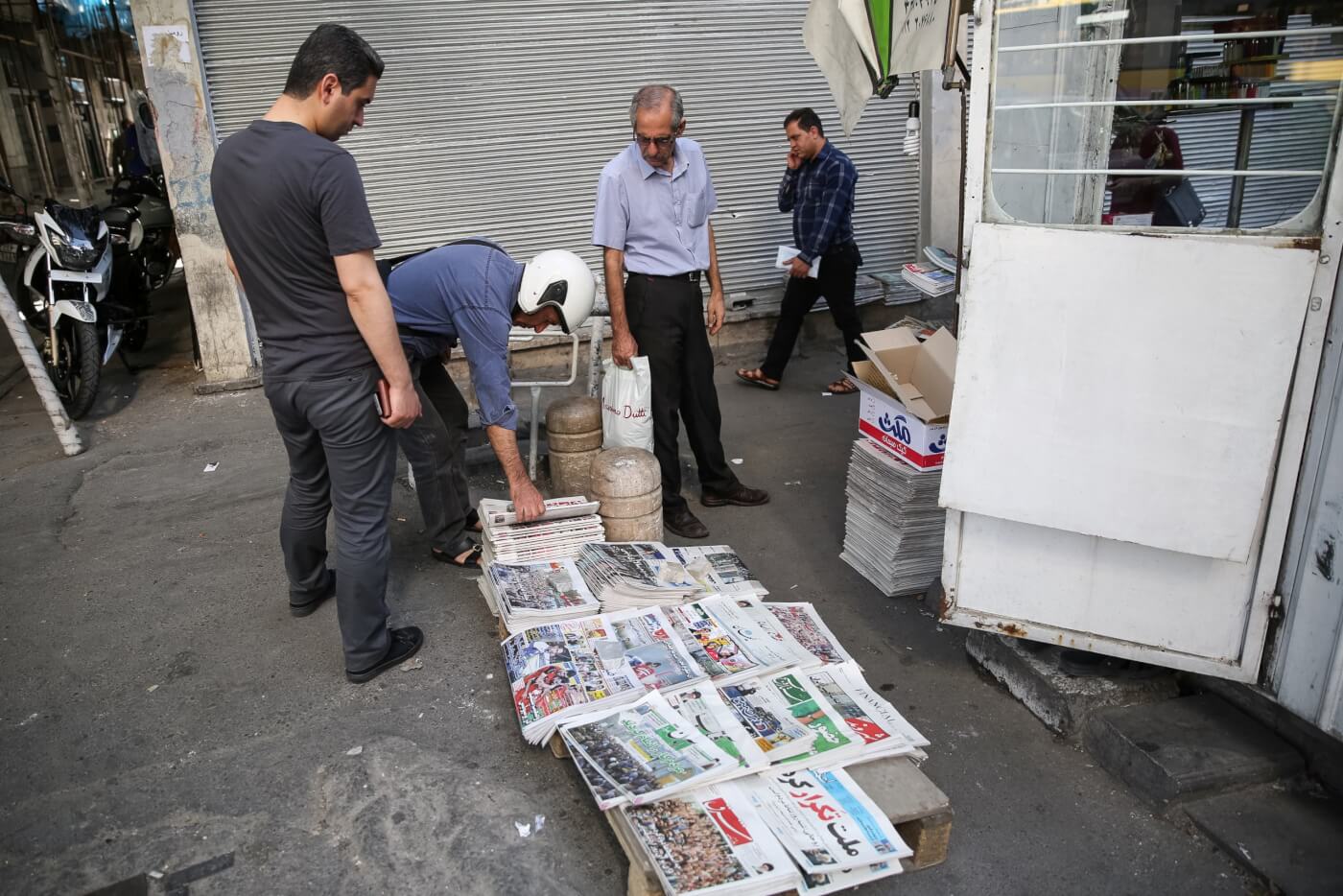On 10 August, Iran closed the Jahane Sanat newspaper after it quoted an expert who questioned the country’s official coronavirus statistics, managing editor Mohammad Reza Saadi told the official IRNA news agency. The IRNA report did not say how long the suspension would last.
Questioning Iran’s official Covid-19 numbers
In an interview yesterday headlined “No Trust in the Government’s Statistics,” government epidemiologist Mohammad Reza Mahboubfar told Jahane Sanat the real coronavirus case and death counts could be 20 times higher than the government figures.
Mr Mahboubfar told the paper that the country’s virus figures
“have certainly been engineered since the start of the outbreak.”
He also said the government “covered up” the first case of the disease “for political and security reasons,” according to the interview.
Earlier this month, an investigation by the BBC Persian service found that leaked government records charting coronavirus cases appeared to indicate numbers may be three times higher than those reported by the health ministry.
The government’s own records say almost 42,000 people died with Covid-19 symptoms up to 20 July, versus 14,405 reported by its health ministry. The number of people known to be infected is also almost double official figures: 451,024 as opposed to 278,827.
The official numbers still make Iran the worst-hit in the Middle East.
One of the world’s most repressive countries for journalists for the past 40 years
The shutdown of Jahane Sanat is only one example of how the Islamic regime cracks down on press freedom and does its utmost to suppress vital information regarding Covid-19. The Committee to Protect Journalists has documented that journalists in Iran have been ordered to only announce official virus data, even after news reports of mass graves emerged, suggesting that the death toll was in fact much higher than the official count.
“This latest move to target a newspaper for reporting on Covid-19 is an irresponsible act in the face of the biggest public health crisis of our time. The closure of Jahane Sanat is an unfortunate continuation of Iran’s long practice of suppressing information to the detriment of the Iranian people’s well-being,” said CPJ Middle East and North Africa representative Ignacio Miguel Delgado.
Denise Hassanzade Ajiri, an Iranian journalist living in the United States reporting on the coronavirus in Iran, told CPJ that she has also found data about the coronavirus coming out of the country to be neither reliable nor readily available.
“Usually finding data within Iran is a bit complicated, but not impossible,” she said. “But when it comes to stories related to the coronavirus, everything is a mess. The government doesn’t really provide data.”
When Ajiri does access virus data from sources inside the country, she doesn’t trust it, saying the government
“deliberately spreads misinformation.”
According to Reporters Without Borders (RSF), Iran has been one of the world’s most repressive countries for journalists for the past 40 years. State control of news and information is unrelenting and at least 860 journalists and citizen-journalists have been imprisoned or executed since 1979.
Iran ranks 173rd out of 180 countries in the RSF 2020 World Press Freedom Index.

